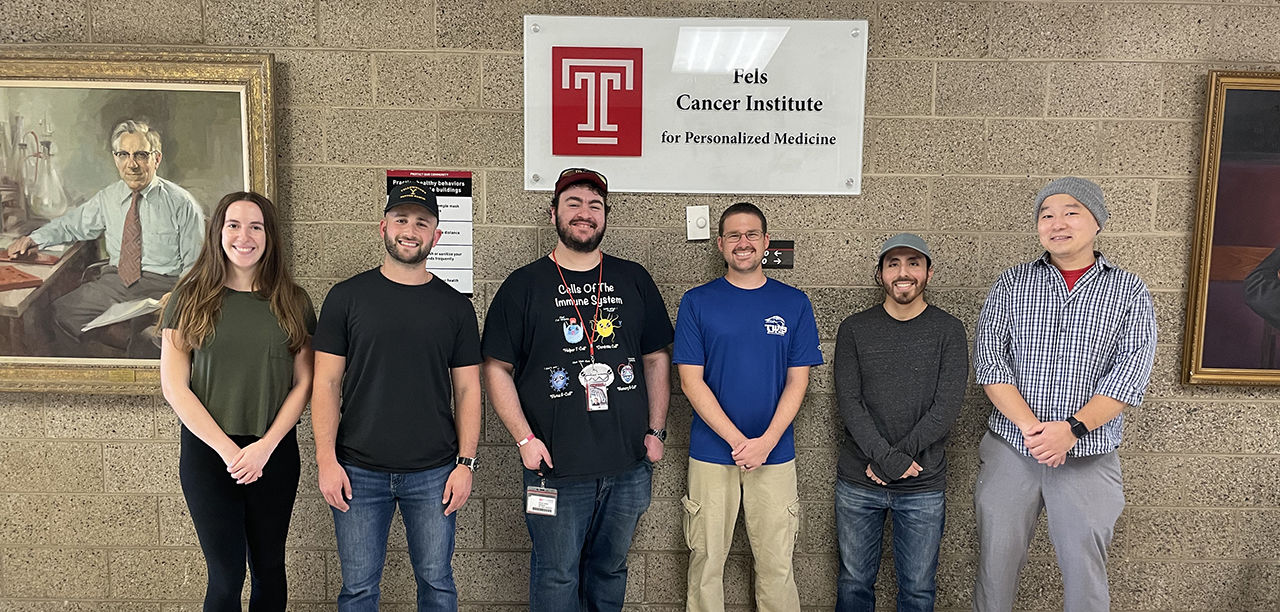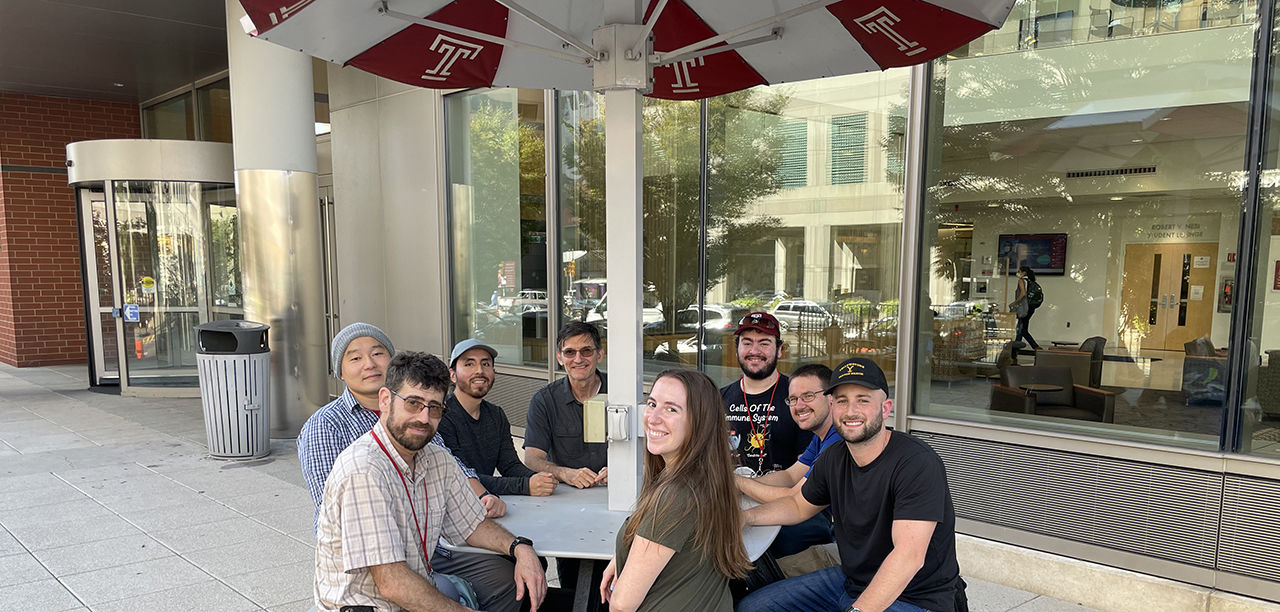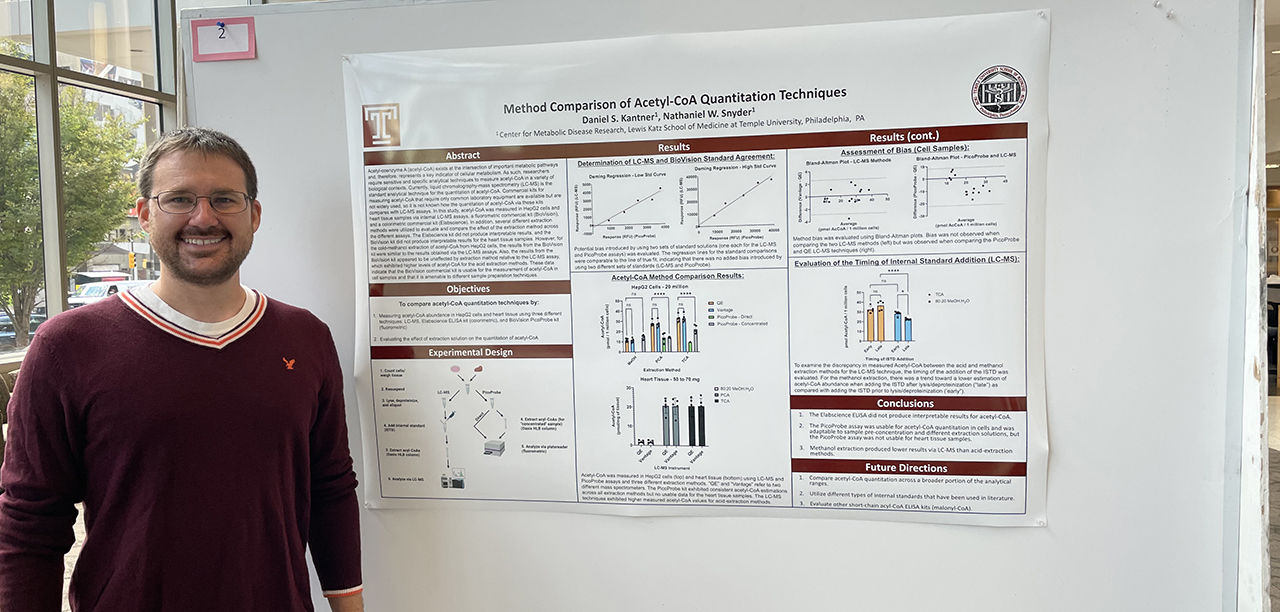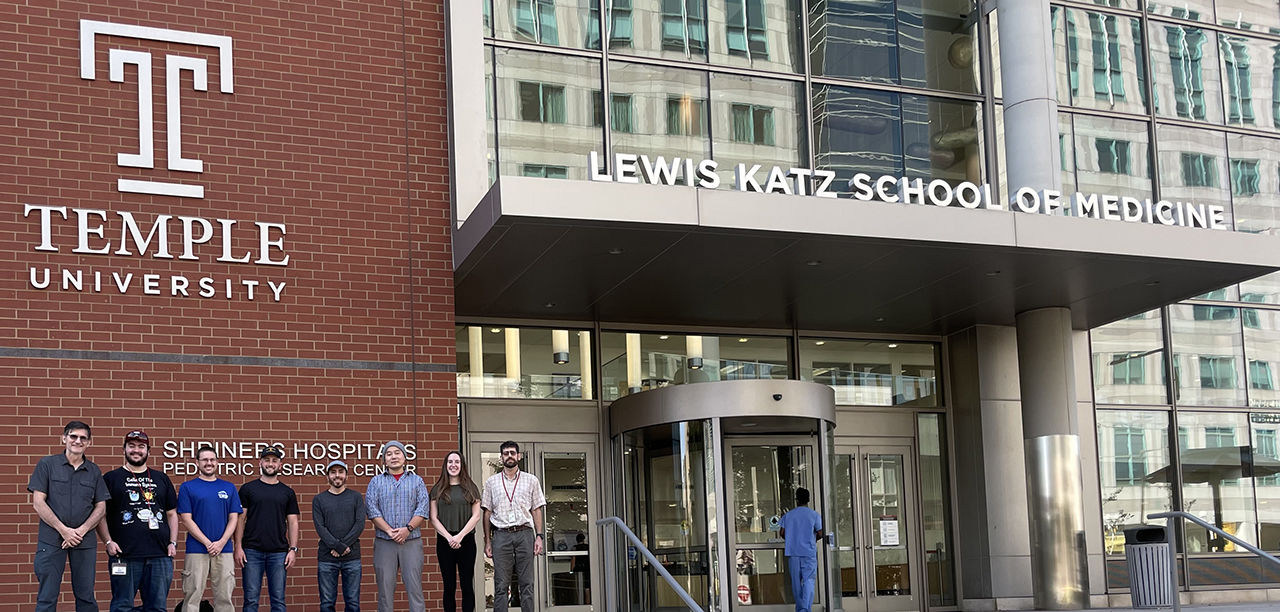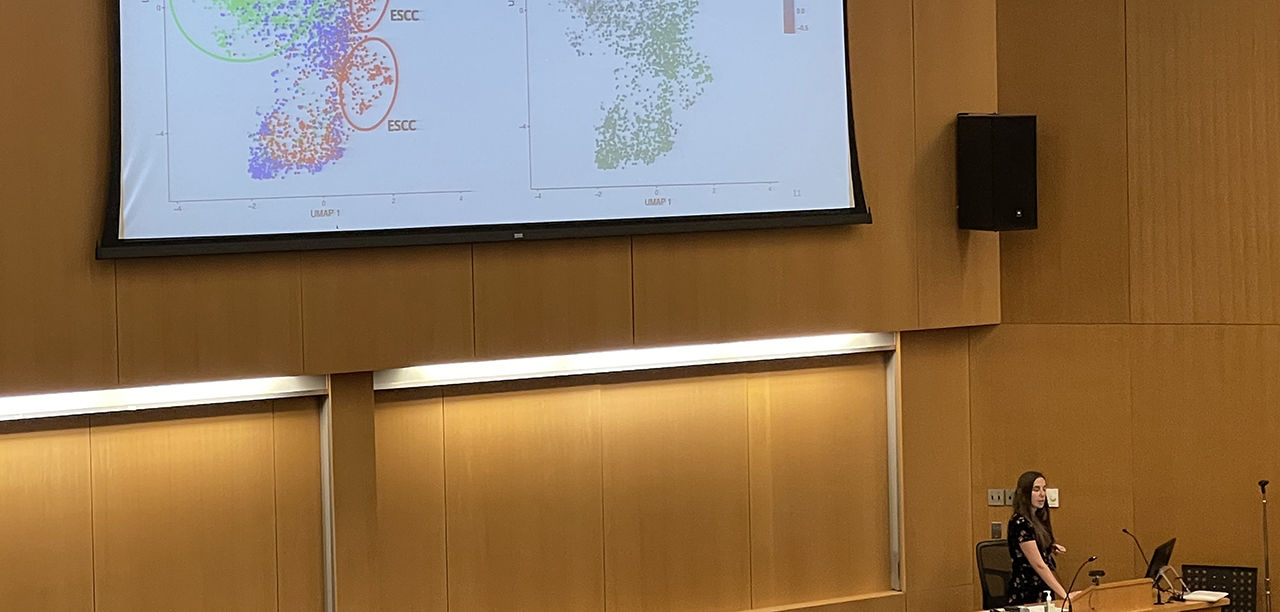Predoctoral Training in Molecular Biology and Genetics with Concentration in Signaling, Epigenetics and Genome Maintenance
This predoctoral T32 program is funded by the NIGMS and supports the stipends and tuition for three Y2 students and three Y3 students from two cluster in the Biomedical Science Graduate program at Lewis Katz School of Medicine:
The Program Mission
This T32 program will recruit students from the CBGN and the MCBS clusters who have completed 2 semesters of didactic course work, 3 laboratory rotations (including a rotation in the proposed T32 mentor’s laboratory) and from the MD/PhD program, after 4 laboratory rotations and the first two years of the medical curriculum. These students will have broad interests in molecular and cellular biology, biochemistry and the genetic basis of disease and will be seeking interdisciplinary approaches, collaborative environments and rigorous methodology and training in the responsive conduct of research (RCR). The goal is to provide a more integrated interdisciplinary experience that cannot be fully met by joining a single cluster.
The focus for this training proposal was chosen primarily to reflect the presence of multiple leaders in these fields in the CBGN and MCBS clusters, who have joined in collaborative efforts to tackle problems at the intersection of these disciplines. This proposal will support research training opportunities in the laboratories of more than 35 Assistant, Associate and full Professors. Mentors in this program bring strength in multidisciplinary programs in molecular and cellular biology, biochemistry, biophysics, genetics and epigenetics, using state of the art approaches in confocal and TIRF microscopy, mass spec proteomics, structural biology molecular modeling, bioinformatics, high throughput screens, genomics, and epigenomics using a variety of animal and cellular model systems and human samples. Mentors in this program have a long tradition in the training of both graduate students and postdoctoral fellows with very high academic standards and will receive additional training in modern evidence-based mentoring practices.
This program will further provide a broader understanding of disease mechanisms and will develop in the trainees an in-depth understanding of the clinical challenges associated with their research interest area. Beyond scientific and state-of-the-art technical knowledge and translational research competencies, our goal is to develop in these trainees critical thinking and experimental rigor, managerial, teaching and training skills, communication proficiency and a capacity for professional networking. Upon graduating, we are confident that this unique interdisciplinary training experience will make our students not only highly competitive for further postdoctoral training in academia and industry, but also highly competitive for research related jobs in science college education, research administration, science policy and advocacy, technology transfer, science and medical writing and scientific editing, business and financial analysis, science consulting, big bioscience data managing and a broader array of future biomedical research jobs.

